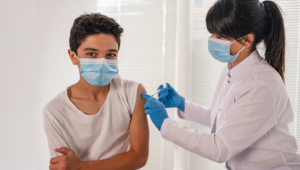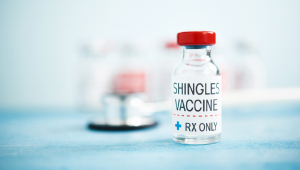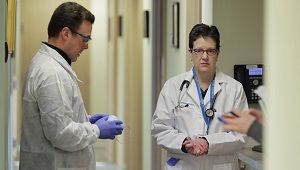Lisa A. Jackson, MD, MPH
Biography
Lisa A. Jackson, MD, MPH, is an internist and infectious disease epidemiologist who has conducted clinical and epidemiologic studies of vaccine safety and efficacy since 1991.
Dr. Jackson is the principal investigator (PI) of KPWHRI’s Vaccine and Treatment Evaluation Unit — one of 10 network sites that the National Institutes of Health (NIH) sponsors. In this role, she leads the phase 1 clinical trial of the COVID-19 vaccine co-developed by Moderna and NIH. Launched in March 2020, this trial was the first in the world to begin testing a COVID-19 vaccine. She is also leading the phase 3 clinical trials of the COVID-19 vaccines developed by Moderna and NIH and by Janssen Pharmaceutical Companies, part of Johnson & Johnson, at KPWHRI.
Additionally, Dr. Jackson serves as KPWHRI’s principal investigator in the Vaccine Safety Datalink Project (VSDP). Sponsored by the Centers for Disease Control and Prevention (CDC), VSDP conducts ongoing research on the safety of licensed vaccines in routine use.
Dr. Jackson has written more than 200 peer-reviewed publications and 14 book chapters. She is a past member of the Food and Drug Administration’s Vaccines and Related Biological Products Advisory Committee and the National Vaccine Program Office’s National Vaccine Advisory Committee.
After receiving her medical degree from the University of Virginia School of Medicine, in Charlottesville, Dr. Jackson earned her Master of Public Health (MPH) degree at the University of Washington (UW) School of Public Health. She completed her internal medicine residency training at the UW School of Medicine and served as an epidemic intelligence officer and preventive medicine resident at the CDC.
Research interests and experience
Vaccines & Infectious Diseases
Vaccine safety; COVID-19 vaccine safety and effectiveness; influenza vaccine effectiveness in the elderly; methodologic issues in vaccine effectiveness evaluations; pneumococcal polysaccharide vaccine effectiveness; pneumococcal conjugate vaccine immunogenicity in the elderly; epidemiology of E. coli bacteremia; epidemiology of community-acquired pneumonia
Recent publications
Chung JR, Flannery B, Kim SS, Gaglani M, Raiyani C, Belongia EA, McLean HQ, Nowalk MP, Zimmerman RK, Jackson ML, Jackson LA, Martin ET, Monto AS, Patel M Sample size considerations for mid-season estimates from a large influenza vaccine effectiveness network in the United States 2021 Jun 8;39(25):3324-3328. doi: 10.1016/j.vaccine.2021.05.004. Epub 2021-05-13. PubMed
Pegu A, O'Connell S, Schmidt SD, O'Dell S, Talana CA, Lai L, Albert J, Anderson E, Bennett H, Corbett KS, Flach B, Jackson L, Leav B, Ledgerwood JE, Luke CJ, Makowski M, Roberts PC, Roederer M, Rebolledo PA, Rostad CA, Rouphael NG, Shi W, Wang L, Widge AT, Yang ES, mRNA-1273 Study Group, Beigel JH, Graham BS, Mascola JR, Suthar MS, McDermott A, Doria-Rose NA Durability of mRNA-1273-induced antibodies against SARS-CoV-2 variants 2021 May 16 doi: 10.1101/2021.05.13.444010. Epub 2021-05-16. PubMed
Murphy SC, Deye GA, Sim BKL, Galbiati S, Kennedy JK, Cohen KW, Chakravarty S, Kc N, Abebe Y, James ER, Kublin JG, Hoffman SL, Richie TL, Jackson LA PfSPZ-CVac efficacy against malaria increases from 0% to 75% when administered in the absence of erythrocyte stage parasitemia: A randomized, placebo-controlled trial with controlled human malaria infection 2021 May;17(5):e1009594. doi: 10.1371/journal.ppat.1009594. Epub 2021-05-28. PubMed
Abate G, Stapleton JT, Rouphael N, Creech B, Stout JE, El Sahly HM, Jackson L, Leyva FJ, Tomashek KM, Tibbals M, Watson N, Miller A, Charbek E, Siegner J, Sokol-Anderson M, Nayak R, Dahlberg G, Winokur P, Alaaeddine G, Beydoun N, Sokolow K, Kown NP, Phillips S, Baker AW, Turner N, Walter E, Guy E, Frey S Variability in the Management of Adults with Pulmonary Nontuberculous Mycobacterial Disease 2021 Apr 8;72(7):1127-1137. doi: 10.1093/cid/ciaa252. PubMed
Kharbanda EO, Vazquez-Benitez G, DeSilva MB, Naleway AL, Klein NP, Hechter RC, Glanz JM, Donahue JG, Jackson LA, Sheth SS, Greenberg V, Panagiotakopoulos L, Mba-Jonas A, Lipkind HS Association of Inadvertent 9-Valent Human Papillomavirus Vaccine in Pregnancy With Spontaneous Abortion and Adverse Birth Outcomes 2021 Apr;4(4):e214340. doi: 10.1001/jamanetworkopen.2021.4340. Epub 2021-04-01. PubMed
Wu MJ, Chung JR, Kim SS, Jackson ML, Jackson LA, Belongia EA, McLean HQ, Gaglani M, Reis M, Beeram M, Martin ET, Monto AS, Nowalk MP, Zimmerman R, Santibanez TA, Singleton JA, Patel M, Flannery B Influenza vaccination coverage among persons seeking outpatient medical care for acute respiratory illness in five states in the United States, 2011-2012 through 2018-2019 2021 Mar 19;39(12):1788-1796. doi: 10.1016/j.vaccine.2021.01.065. Epub 2021-02-15. PubMed
Jackson ML, Ferdinands J, Nowalk MP, Zimmerman RK, Kieke B, Gaglani M, Murthy K, Petrie JG, Martin ET, Chung JR, Flannery B, Jackson LA Differences between Frequentist and Bayesian inference in routine surveillance for influenza vaccine effectiveness: a test-negative case-control study 2021 Mar 16;21(1):516. doi: 10.1186/s12889-021-10543-z. Epub 2021-03-16. PubMed
Winokur P, El Sahly HM, Mulligan MJ, Frey SE, Rupp R, Anderson EJ, Edwards KM, Bernstein DI, Schmader K, Jackson LA, Chen WH, Hill H, Bellamy A, DMID 13-0034 H7N9 Vaccine Study Group Immunogenicity and safety of different dose schedules and antigen doses of an MF59-adjuvanted H7N9 vaccine in healthy adults aged 65 years and older 2021 Feb 22;39(8):1339-1348. doi: 10.1016/j.vaccine.2020.11.051. Epub 2021-01-21. PubMed
Kharbanda EO, Vazquez-Benitez G, DeSilva MB, Spaulding AB, Daley MF, Naleway AL, Irving SA, Klein NP, Tseng HF, Jackson LA, Hambidge SJ, Olaiya O, Panozzo CA, Myers TR, Romitti PA Developing Algorithms for Identifying Major Structural Birth Defects Using Automated Electronic Health Data 2021 Feb;30(2):266-274. doi: 10.1002/pds.5177. Epub 2020-12-03. PubMed
Widge AT, Rouphael NG, Jackson LA, Anderson EJ, Roberts PC, Makhene M, Chappell JD, Denison MR, Stevens LJ, Pruijssers AJ, McDermott AB, Flach B, Lin BC, Doria-Rose NA, O'Dell S, Schmidt SD, Neuzil KM, Bennett H, Leav B, Makowski M, Albert J, Cross K, Edara VV, Floyd K, Suthar MS, Buchanan W, Luke CJ, Ledgerwood JE, Mascola JR, Graham BS, Beigel JH, mRNA-1273 Study Group Durability of Responses after SARS-CoV-2 mRNA-1273 Vaccination 2021 Jan 7;384(1):80-82. doi: 10.1056/NEJMc2032195. Epub 2020-12-03. PubMed
News

Vaccine program recruiting volunteers in Seattle area
KPWHRI’s vaccine registry was the first to enroll participants in a clinical trial of a COVID-19 vaccine.
News

Clinical trial will evaluate mpox vaccine for adolescents
The NIH-sponsored trial will help inform decisions about vaccine approval for 12- to 17-year-olds.
Research

New study confirms safety of shingles vaccine
KPWHRI researchers analyzed data from more than 640,000 vaccine doses to understand risk of severe reactions.
Research

‘Fighting back’ against COVID-19: Remembering a historic trial
Lisa Jackson, MD, MPH, Kaiser Permanente Washington senior investigator, recounts the genesis of a groundbreaking vaccine.



